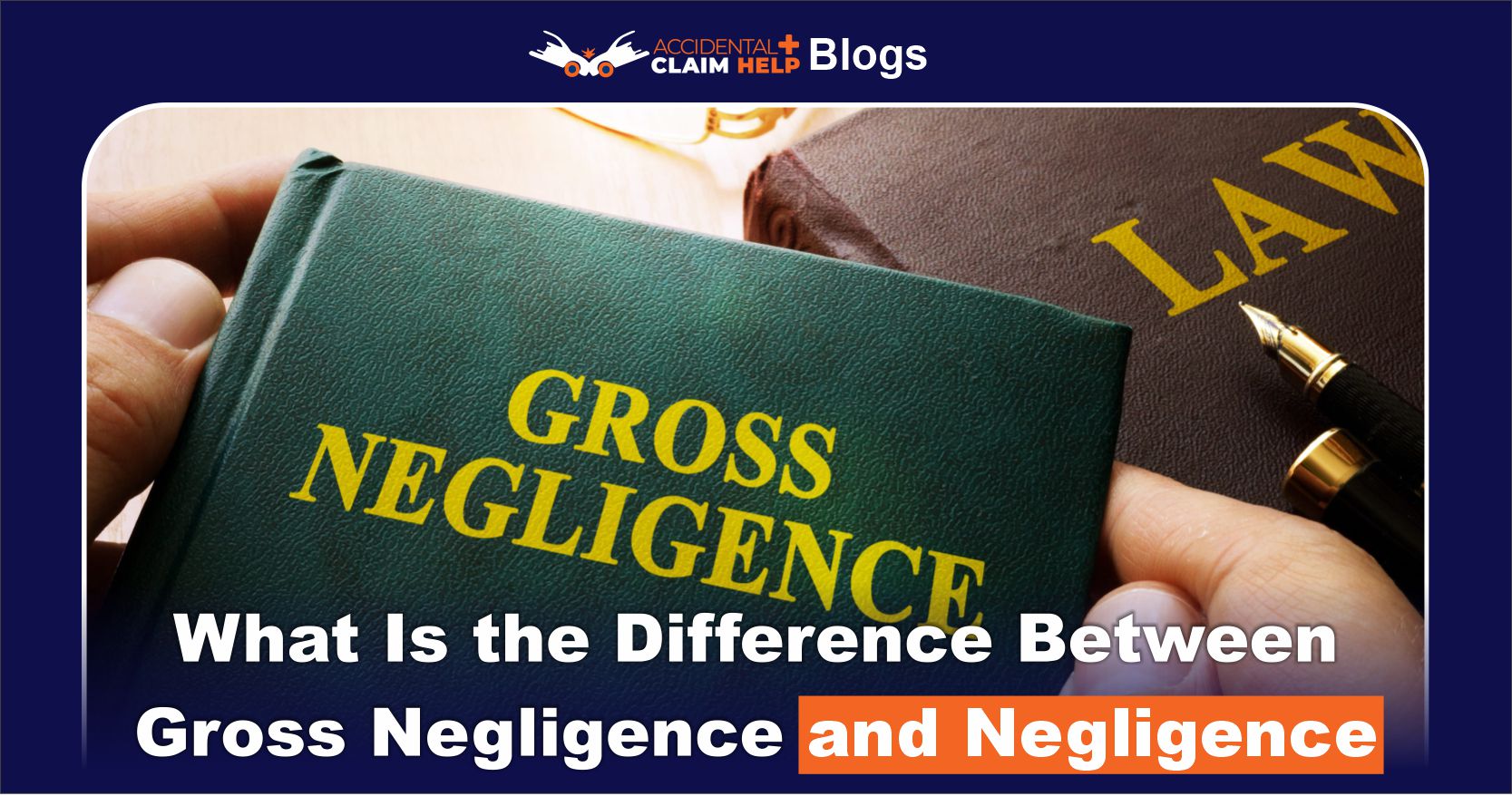What Is the Difference Between Gross Negligence and Negligence
Ever wondered what really separates negligence from gross negligence? It’s a big difference, especially in legal cases. In simple terms, negligence means failing to use reasonable care, like bumping another car by mistake. Gross negligence is far more serious—it’s reckless behavior that shows extreme disregard for safety. This guide gives you a clearer picture, explains why it matters, and includes helpful details most blogs leave out.
Basic Definitions: Gross Negligence and Negligence
Negligence is when someone fails to act with reasonable care, causing harm. It could be a minor oversight, a lapse in judgment, that breaches a duty of care. You need duty, breach, causation, and damage to prove it.
Gross negligence goes beyond mere carelessness. It’s a reckless disregard for safety or consequences. Courts often describe it as the lack of even slight care or a conscious violation of others’ safety rights.
How Ordinary Negligence Works
Example: someone texting while driving or failing to clean a spill. These actions aren’t deliberate, but they lack reasonable care. Compensation typically covers medical bills, repairs, and lost wages.
These cases stop at compensatory damages—the goal is to make the injured party whole, not penalize the wrongdoer.
What Qualifies as Gross Negligence

Gross negligence involves more than a mistake. It’s conduct like speeding through a school zone, ignoring known hazards, or repeatedly violating safety protocols. The actor knowingly disregards serious risks.
Because it’s so extreme, courts sometimes allow punitive damages—money meant to punish and deter—based on clear and convincing evidence of reckless conduct .
Why the Difference Matters
Ordinary negligence allows victims to seek compensatory damages for real losses. Gross negligence opens the door to punitive damages that punish the defendant and deter similar conduct. Proving it requires a higher standard—clear and convincing proof of reckless indifference.
Some states limit punitive awards by statute. For example, Texas caps punitive damages at the greater of $200,000 or twice economic damages plus non-economic damages, not to exceed $750,000.
Real-World Examples
Ordinary negligence: running a stop sign, failing to secure a step, or overlooking a medical symptom. These result in losses but no punitive penalties.
Gross negligence: a restaurant serving sauce at dangerously high temperatures despite warnings received—leading to serious burns. A Texas jury awarded nearly $1.9 million in punitive damages for that behavior.
Evidence & Strategy for Proving Gross Negligence
To prove gross negligence, collect detailed evidence: medical records, accident reports, photos, emails, or memos showing awareness of risk. Expert testimony can help reconstruct dangerous conditions.
Document any prior warnings or ignored hazards. Courts look for proof that the defendant was aware of risk and consciously disregarded it. Expert reports and witness statements can make or break the case.
Proactive Evidence Collection Tips
Build a strong case with records showing prior warnings or incidents ignored by the defendant. Preserve documents like emails, memos, complaints, or training logs.
Use expert witnesses—medical professionals, accident reconstruction specialists—to assess the risk and degree of recklessness. Organize documentation clearly and securely to make it admissible and persuasive in court.
Frequently Asked Questions
Is negligence and gross negligence the same?
No. Negligence is a failure to exercise reasonable care, while gross negligence is an extreme departure from that standard, showing reckless disregard.
What is the difference between grossly negligent and negligent?
Gross negligence is more serious and shows conscious indifference to a risk. Plain negligence involves a failure to prevent harm from carelessness, without recklessness. .
What is the difference between negligence and gross negligence in English law?
English law does not recognize gross negligence as a separate tort—it’s sameness in kind, not degree. However, when used in contracts, courts see gross negligence as a higher threshold—something more than ordinary negligence.
What is the difference between gross negligence and recklessness?
Gross negligence involves a reckless disregard of risks but isn’t necessarily intentional. Recklessness involves conscious awareness of risk—and choosing to proceed anyway. In many U.S. jurisdictions, recklessness is considered more serious than gross negligence, especially in criminal law.
What damages can you recover
With ordinary negligence, you get compensatory damages like medical bills and lost wages. With gross negligence, you may also receive punitive damages depending on jurisdiction and severity.
Final Remarks
Understanding the difference between gross negligence and negligence is essential. Ordinary negligence is carelessness, while gross negligence reflects extreme or reckless disregard that may trigger punitive damages. That distinction influences legal strategy, proof requirements, and potential compensation. Knowing when each applies helps you pursue or defend claims effectively.







